- Home
- Jane Arbor
Nurse in Love Page 2
Nurse in Love Read online
Page 2
“He didn’t know—”
“All the same, bet you could have done as much for the nipper as him!”
She left him staring, indignant for her. She was a little ashamed of being grateful for his championship. But she was.
At breakfast, talk at the Sisters’ table ran mainly upon the new ‘intake’ of student nurses due to go on the wards that morning. For, each three months, fourteen to twenty girls left the care of Sister Tutor in the Preliminary Training School and set upon the adventure of real nursing with varying success.
Sister Bridgeworth, a spare, agile woman of thirty-five, stirred her coffee moodily and demanded: “Has anyone seen this lot? What are they like?”
“Pretty dumb, I daresay,” suggested a cynic.
“I don’t know,” another voice contributed. “Sister Tutor told me she thought they were well above the average.”
“An incurable optimist, Sister Tutor! According to her, they’re always ‘above the average’. But she should see some of them when they get on to the wards!”
“All the same, we ought to be fair.” This a little hesitantly from Kathryn. “Do you think, for instance, that they’re any worse than we were? I know that, looking back, I blush for myself!”
“They start out knowing more, but we had to work harder and pick up our nursing as we went along. When I trained there was no block-system for us. We had to do our theory in our own time. I doubt if these girls would come through the conditions we knew in those days,” said an elderly Sister who was about to retire.
“I don’t think I agree.” Kathryn was undaunted. “After all, taking up nursing involves a pretty big decision in itself, and no one who really wants to nurse is going to be put off by any conditions whatsoever.”
The older woman’s eyes softened. “What an idealist you are, Clare! You love every minute of your nursing, don’t you?”
“I’m not the only one,” defended Kathryn. “Sister Bridgeworth—”
“Well, I’m not loving this morning’s prospects, I can tell you.” Sister Bridgeworth stood up briskly and pushed in her chair. “Last time they wished students on to me I told Matron I was in charge of a Medical ward, not a kindergarten.”
“You told Matron nothing of the sort!” Kathryn rose too, and they left the dining-room together. “On the contrary, if I know you, you buckled to and did the work for them. Didn’t you now?”
Sister Bridgeworth had the grace to blush. “It’s often quicker that way,” she allowed.
“Well, I can promise you that you’ve got one student who is intelligent and keen,” promised Kathryn. “She’s a friend of mine.”
“What is her name?”
“Spender. Sara Spender. Straight fair hair and blue eyes.”
“I’ll look out for her. And by the time she’s used to my ways she’ll probably decide that a nursing career is not for her, and she’ll leave.”
“This one won’t.”
“Well she’ll be whisked off to Theatre or night duty or something.”
“Of course she will. Aren’t they all? Or didn’t you know that Matron’s duty-list has the game of General Post beaten to a frazzle?” laughed Kathryn as they parted.
On her own ward she was greeted as usual by a babel of childish voices, mostly cheerful, but interspersed here and there by a rising wail of protest. Before going to take the night report she looked in upon one or two of the four-cot wards, where she opened a window, ruffled a tousled head or two, scanned a chart and responded to the gay chorus of: “G’ morning, Sister!”
In her office the senior night nurse awaited her with the report. But before she began to chant mechanically through it Kathryn asked quickly: “Did you have any admissions, Nurse?”
“Yes one. From Casualty. A boy named Roger Horrick. Five, he is. Eight-thirty last night. Fractured tibia, bruises and shock.” The girl looked up from the report. “A lorry ran him down, Sister.”
“Yes, I know. I saw it happen. That’s why I asked,”
“Oh, Sister—! He’s not in danger, though.”
“Good. Have his people seen him?”
“His mother came in for a few minutes last night She’s to come again to-day.”
“All right, I’ll go and see him. And now what’s the rest of the report, Nurse?”
When the night staff had completed their work and gone off duty, the ward slipped smoothly into its customary daytime routine. The children, naturally, were unaware that this particular day held any special prospect, but Kathryn and the staff were alert with the expectancy of seeing the ward’s new specialist upon his first round.
Kathryn went for her morning break at nine-thirty, calculating that he would not arrive until after she got back. And she planned, on her return, to go to spend a little time with Roger Horrick, who had been fretful when she left.
But when she went to the single-cot ward where he lay she was surprised to find that he was no longer alone.
On one side of his bed stood a man with his back to the door—it could only be Dr. Brand, she decided. On the other stood a working woman who started dumbly across at him while her fingers pleated ceaselessly at a corner of the child’s coverlet.
Kathryn closed the door behind her, and at the sound the man turned. And, upon the instant, recognition flashed between them. In Kathryn’s mind there was no doubt at all that they both knew they had met before, and that it had been at this same child’s side, as now. But Dr. Brand made no sign. He allowed his eyes to travel briefly over her, then said:
“My name is Brand. You’ll have been expecting me. You are Sister Clare, I take it?”
“Good morning, Dr. Brand. Yes, I’m Children’s Ward Sister.”
Afterwards she wondered what she had expected of this surprise meeting. Embarrassment? Apology?
But Dr. Brand merely nodded and turned back to the bed, replacing the covers. To Mrs. Horrick he said drily: “Roger is fortunate, you know. Not much wrong with him that won’t heal quickly. But you realise, don’t you, that you’re not going to be able to let him run such risks again? A child of five—and out on the streets at that hour of night! What are you thinking of to allow it?”
The woman opened her mouth once or twice before she burst out: “I can’t help it, Doctor. At night I clean offices in the West End, and I have to leave home at five o’clock. Can’t put him to bed that early, can I? There’s nobody to look after him. I’m a widow.”
“Have you no neighbours you could leave him with?”
“It’s the neighbours’ lads who come round and take him on the streets,” she retorted.
“Well, can’t you get daytime work near home, so that you would be out when he is at school and at home with him when he should be in bed?”
To that she made no reply, but an incoherent mutter to the effect that “getting work on your own doorstep wasn’t that easy—let the Doctor try, some time”, and Kathryn, pitying her said quickly: “Perhaps you’d like Mrs. Horrick to see the Social Worker, Doctor Brand? I could speak to her about the case.”
“Yes, do. No—I’ll see the Social Worker myself.” He turned back to Mrs. Horrick. “Sister will let you come in again to-morrow, I daresay. Meanwhile the boy will be all right.”
She read his words as dismissal and scuttled away. Kathryn ventured, “It’s very difficult for mothers who go out to work, you know.”
His eyes met hers uncompromisingly. “But one can’t blame the children—or hope to teach them caution at that age. They’ve got to be someone’s responsibility, and whose but the parents’?”
“I suppose Mrs. Horrick would have got daytime work if she could,” murmured Kathryn.
He shrugged. “Yes, well—I propose to put that to the test. I’ve just moved into a house nearby, and I suppose I shall need a daily woman. That’s why I said I’d like to see the Social Worker. T daresay she’ll be able to get me Mrs. Horrick’s references and all that.”
Kathryn glanced at him in grateful surprise. Nothing of his brusque
manner towards the child’s mother had revealed this warmth of purpose behind his questions. She said impulsively: “That sounds like a happy ending, Doctor!”
“Surely no more than an obvious solution, Sister?” Above his straight grey eyes his brows were raised in a way she was to come to know well. It was his dismissal of a subject of no further significance to him. And it had, she decided at her first experience of it, a damping effect.
As they made the round of the rest of the ward she could not but admire his manner with those most difficult of patients—children. His very hands seemed to have a gentle understanding which even the tiny babies could trust; he asked the minimum of questions, and his orders were given with a precision which even the junior nurse could appreciate. And Kathryn’s mental verdict was a thankful one—“He’ll take some knowing. But working with him should be worthwhile!”
They returned together to her office, and as he bent to sign some papers with a scrawled “Adam Brand” she stood by, watching him and realising with a little sense of shock that in the brief pause she was seeing him not so much as a welcome colleague as with an instant electric awareness of him as a man.
She found herself noticing the controlled strength of the fingers spread to support him as he wrote; appraising the way the hair grew back from the broad, intelligent brow; judging him to be about twelve years her senior—and for some reason comparing him with Steven—with Steven Carter, who she had not been able to love...
He straightened and handed the papers to her. Then he stood back from the table and with a deliberate effect which sounded oddly like an accusation, said: “So you are Kathryn?”
She looked at him, recognising the use of her Christian name for what it was—neither a friendliness nor a familiarity but a quotation of someone else’s use of it. But what friends had they in common? She replied with a hesitant: “My name is Kathryn, yes. But—?”
Adam Brand said: “Steven Carter is one of my oldest friends, you know.” He still spoke with a weighty seriousness she did not understand. But at Steven’s name she smiled. So that was the link.
She said eagerly: “Steven was? No, I didn’t know—”
“ ‘Was’?” He took up the word sharply, unsmilingly. “He still is. Or hadn’t you heard that, after his life was despaired of, he has recovered from the blood-poisoning he contracted within a week of his landing at Lagos?”
“I had heard, naturally—from Thelma, his sister.”
“Not from Steven himself?”
“I understood from Thelma that he was too ill to write. We hadn’t corresponded at all, anyway.”
“It hadn’t occurred to you that, being as ill as he was, he might have hungered to hear from you—above anybody? Or that the weight of your responsibility for his falling ill should have driven you to seek at least firsthand news of him?” This time there was no mistaking the bite of accusation in Adam Brand’s voice.
A slow flush mounted in Kathryn’s cheeks. Carefully, lest she should say too much, she said: “Since you know Steven well, you’ll know that, on his accenting that six months’ trial appointment in West Africa, he asked me to marry him, and I refused. I—liked Steven, but I didn’t write to him because we’d made a clean break. Of course I was sorry to hear he’d been seriously ill. But you can’t really hold me responsible for illness, several thousand miles away!”
“Directly, no, perhaps. Indirectly, as I see it, yes. For nothing less than a personal tragedy he could scarcely brook could possibly have made him so crassly negligent of the most elementary precautions to be taken by a newcomer to a tropical climate. Steven is a doctor with a duty to himself that’s no less than his duty towards others. He wouldn’t have forgotten that, or even have become careless of it, if he hadn’t let himself be broken by an experience he suffered before leaving England. No, Kathryn Clare, I’m afraid my feeling for him is too strong to let you shirk the load of that!”
For all her dismay at the injustice his intolerant judgment did her, Kathryn knew a flash of instinctive sympathy for the strength—and the blindness!—of this man’s friendship for Steven which prompted it. And that moment’s insight kept her voice quiet as she said: “Nothing I did to Steven could have hurt him to the point you suggest. I merely—had my reasons for refusing him. So far as I know, he went out to Nigeria believing I’d acted for the best.”
Somehow she could not bring herself to say simply, “I didn’t love Steven Carter”, for about this fantastic argument there was nothing simple. And she scorned to offer the lesser reason—that Thelma Carter’s dominance over her brother and his fanatical deference to her would have been fatal to their marriage. For Adam Brand’s feeling for Thelma might well be as strong as that which he had for Steven, and Kathryn had no intention of criticising Thelma to him.
Too late she realised her reticence had been a mistake. Adam Brand mocked bitterly: “You ‘had your reasons’! Well, I’ve always thought that a woman can rationalise anything she wants to. And you don’t even trouble to deny that you allowed Steven Carter to care deeply for you, only to reject him out of hand for your own ‘reasons’. That baulks me. I can’t forgive it.”
“Whatever I said, you wouldn’t understand—” Again he nodded agreement. He took his hands from his pockets, squared his shoulders and there was a new, indifferent note in his voice as he said: “Probably not. Clearly, in such matters you and I don’t speak the same language.” With which he gathered his own papers and left her.
At first finding herself alone, Kathryn had an overwhelming impulse to do something childishly primitive—to burst into tears, to drum her heels or her fists—anything that would vent in noise or destruction all the indignation she had held in stern check. But all she did was to stare again at the signature—“Adam Brand”—feeling a pulse of protest throbbing in her throat and fearing that here, to-day, she had made an enemy, and did not know why.
How could the man believe that she had encouraged Steven to hope when she had not? And why should his misjudgment of her matter so much?
To neither question had she any answer which would serve.
CHAPTER TWO
When Sara looked back on her first day on the wards she had to admit somewhat ruefully that none of it was as good as her pleasurable moment of waking to realise that this was indeed The Day, and that in her wardrobe hung her “real” uniform—green-and-white-striped, white-banded at neck and short-sleeved cuff and with starchy frilled cuffs for formal wear—fairly asking to be put on.
She could hardly wait to do so, and was up fully half an hour too early because she knew that her cap was going to be difficult. It was a fold of linen which had to be made up and pinned to the hair at a particular, precise angle. But Sara’s, as she had feared, was highly reluctant to be anchored to her short, straight cut, and she expended at least a dozen pins before it felt anywhere near firm. She went down to breakfast with her head carried at a high, unnatural tilt, hoping for the best, heartily envying the nurses whose curls gave their caps security and admiring more than ever Kathryn’s plaited coronet which so graced her Sister’s coif.
On the ward Sara felt shy and suddenly quite useless. Everyone but herself—the night staff doing their last half-hour, ward maids, orderlies and nurses—was dashing about on accustomed tasks, and no one seemed to have time even to notice her, much less welcome her or give her a job of her own.
Only the patients, their little world enlivened by a new face, eyed her critically or smiled in a friendly fashion. Sara smiled back, resolving that it would not be long before she had their names and their various ailments at her finger-tips. From there it was easy to begin to dream of a time when some world-famous physician would see fit to congratulate her upon her grasp and treatment of his cases, recommending her particularly to Matron and—
“Nurse, Nurse, have you nothing to do? You really must not stand idle upon the ward!” It was Sister Bridgeworth’s brisk voice which broke into the rosy dream, causing Sara to spring at once to guilty attentio
n.
Sister went on, “We must find you something.—Ah, the patients’ flowers—the very thing. Take them all into the sluice, discard the dead ones and rearrange the others. Don’t get them mixed, because patients like their own and no one else’s. And remember that other work has to go on in the sluice, so don’t spread yourself all over it, please!”
Thankfully Sara sped to her task, though she was a little disappointed that it hadn’t a more direct connection with nursing. After all, just anyone who wasn’t a nurse could arrange a few flowers...
At first she tramped back and forth carrying a vase in each hand, for she was to learn by experience that on the ward juniors were rarely helped to labour-saving schemes—they were expected to think out their own. It was not until after her tenth double journey that she ventured to make use of a tin tray that she spotted behind the door of the broom-cupboard. After that she travelled considerably less often.
Everything went well until Sister Bridgeworth came into the sluice, whereupon Sara’s thrusting of flowers into vases became nervous and erratic. She spilled a lot of water too.
Sister said impatiently: “Tch, tch, Nurse! That one isn’t too successful. Here—”
She thrust Sara aside, dumped the flowers from the vase and began to rummage for others in Sara’s carefully separated piles. Sara dared not remind her that the late roses were Mr. Canfield’s, the Michaelmas daisies Mr. Field’s; Sister seemed to sense which were which and arranged vase after vase with a speed and a deftness which left her junior speechless.
At last she stood back, saying: “There! All done—and in half the time you'd have taken, Nurse. Run with them to the ward now, and Staff Nurse will give you something else to do.”
Sara obeyed—though not literally, for running was forbidden on the ward or in any corridor. And after that she was glad to be asked to help a second-year nurse with bed-making, for that, she felt, was a step nearer to nursing and at least she might be able to find out something about the patients themselves.

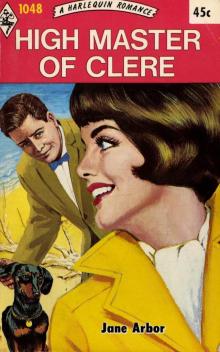 High Master of Clere
High Master of Clere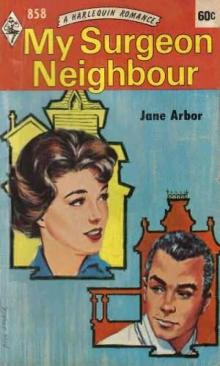 My Surgeon Neighbour
My Surgeon Neighbour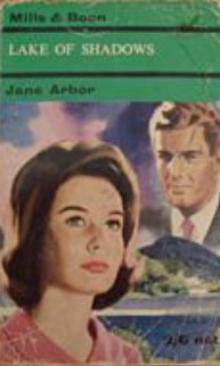 Lake of Shadows
Lake of Shadows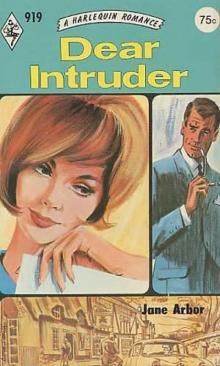 Dear Intruder
Dear Intruder Flash of Emerald
Flash of Emerald Return to Silbersee
Return to Silbersee Far Sanctuary
Far Sanctuary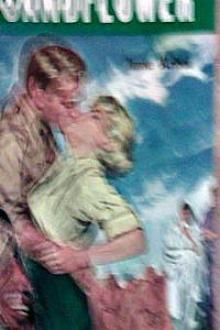 Sandflower
Sandflower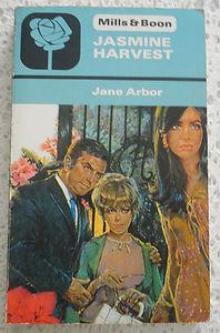 Jasmine Harvest
Jasmine Harvest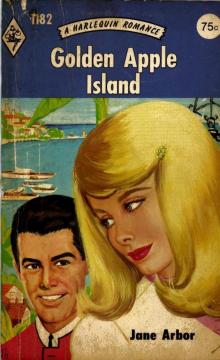 Golden Apple Island
Golden Apple Island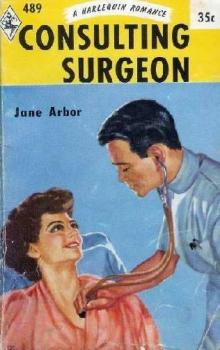 Consulting Surgeon
Consulting Surgeon Pact without desire
Pact without desire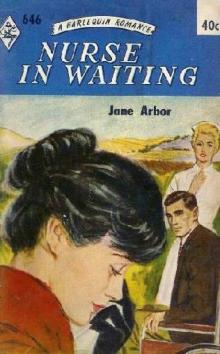 Nurse in Waiting
Nurse in Waiting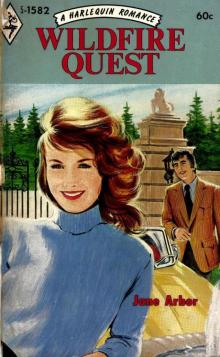 Wildfire Quest
Wildfire Quest Roman Summer
Roman Summer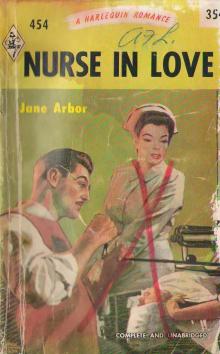 Nurse in Love
Nurse in Love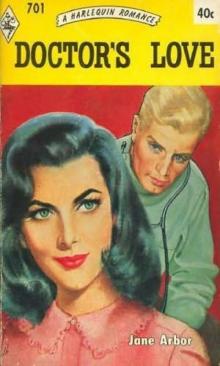 Doctor's Love
Doctor's Love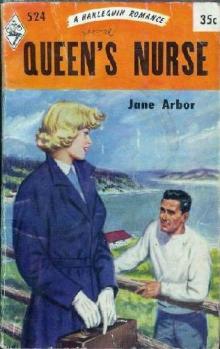 Queen's Nurse
Queen's Nurse Meet the Sun Halfway
Meet the Sun Halfway The Cypress Garden
The Cypress Garden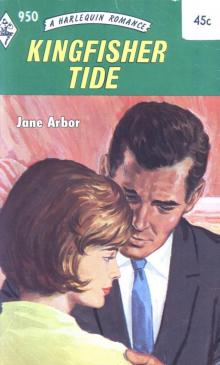 Kingfisher Tide
Kingfisher Tide A Growing Moon
A Growing Moon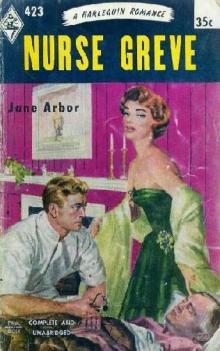 Nurse Greve
Nurse Greve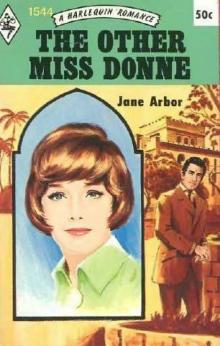 The Other Miss Donne
The Other Miss Donne